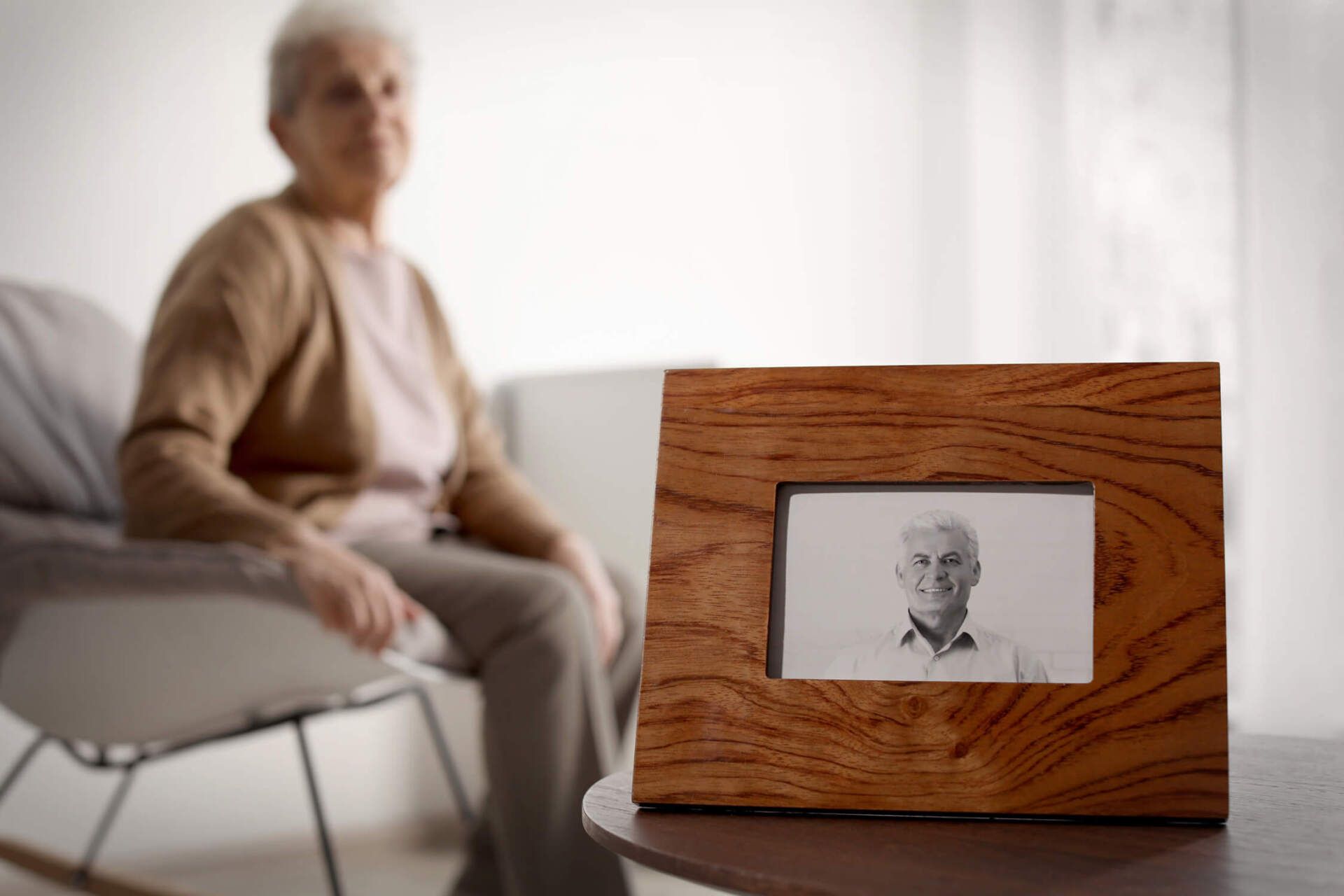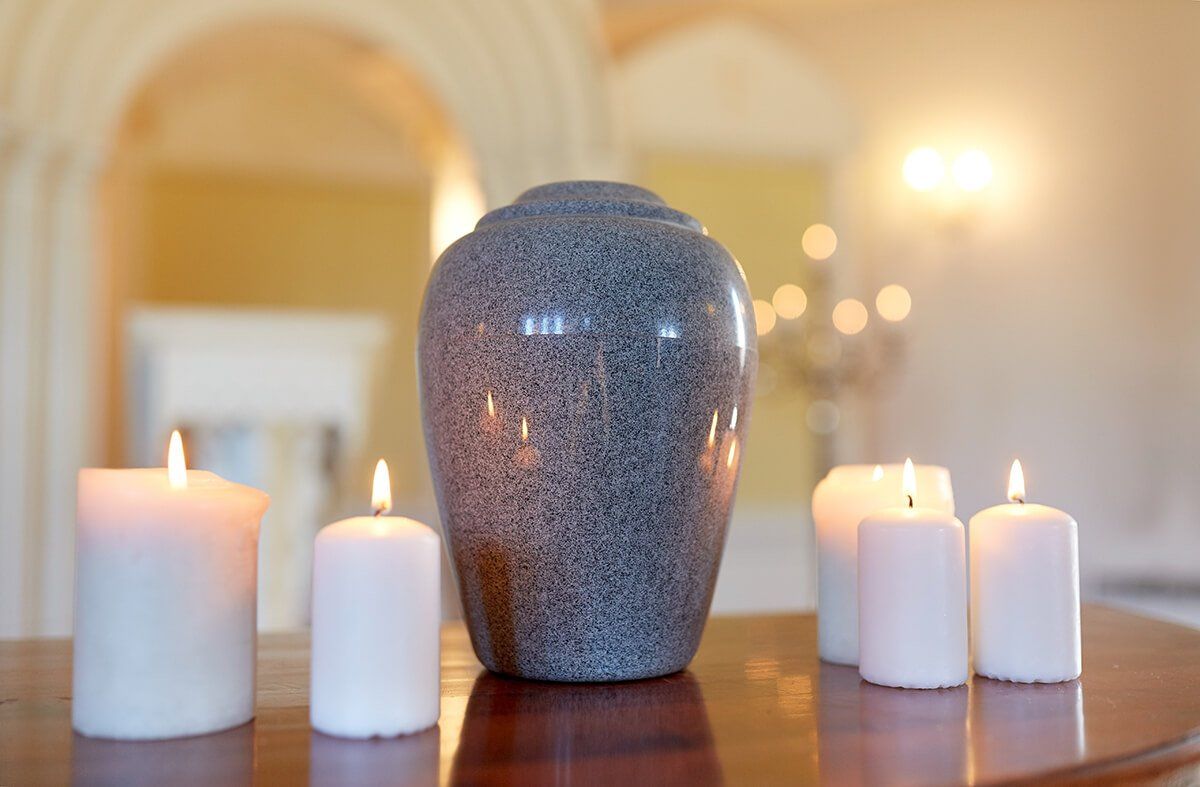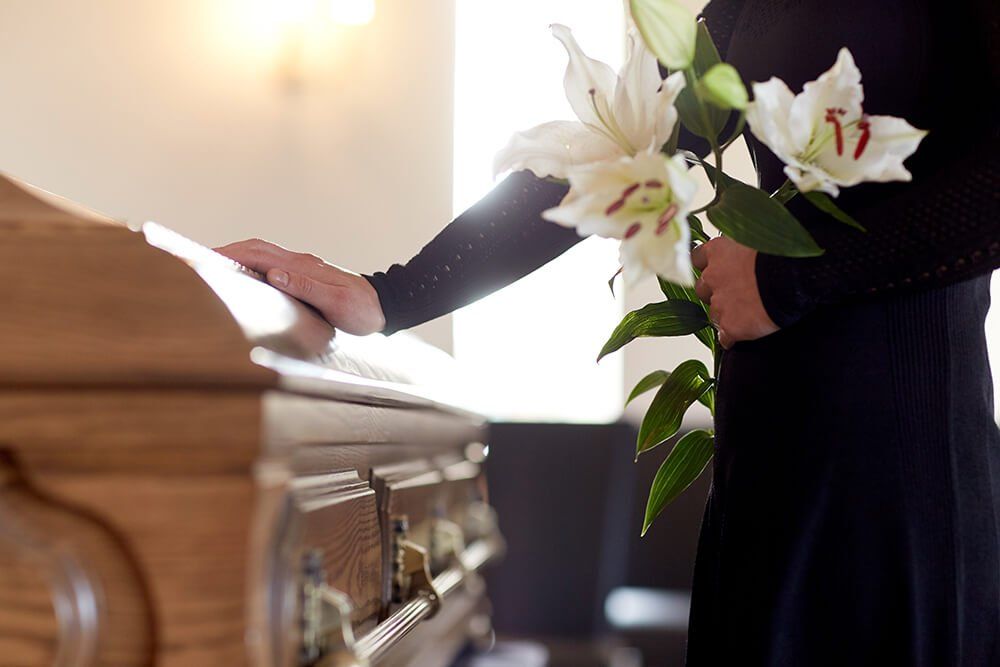Blog

If you have lost a loved one, writing in a journal can be one of the most powerful ways to cope and work toward healing. It encourages you to express and explore the myriad of emotions that accompany grief. Rather than avoiding the reality of the death and extending the grieving process, journaling encourages introspection, which is important in accepting loss and creating a sense of peace. You might not even realize what you are feeling until you sit down to write about it. There are many mental health benefits of journaling, including reducing stress and coping with anxiety or depression. Journaling provides a healthy outlet when emotions feel overwhelming, which can be common while grieving. Practicing gratitude also helps you focus on the positives in life, so writing about what you are grateful for can provide perspective when times might feel shadowed by your grief. One of the best parts about journaling is that there is no right or wrong way to do it, and you never even have to let anyone see your work. Sometimes the words will flow out of you without much thought and other times you might feel a bit stuck. Below is a list of grief journaling prompts you can use for inspiration whenever you need it. Make a list of your favorite things you did with your loved one. Make another list of what you wish you would’ve done. Explain how you are honoring the memory of your loved one in your daily life. Tell about the people you have in your support system. Pick a color that represents how you are feeling today and explain why. Write about the memories of your loved one that seem to be most heavy on your mind. Make a list of what you are grateful for today. Retell the last moments you remember being with your loved one. Write a letter to your loved one about what you have been doing to stay busy lately. Answer these questions to consider how your grief is impacting your activities: What is the hardest time of day for you and why? What is the hardest day of the week for you and why? During which daily activities do you find yourself in the densest fog of grief? During which daily activities do you find your mind wandering away from your grief? What has been your hardest day so far?

Pets have a special way of providing happiness and comfort, and many people consider them beloved members of their family. If you are facing the loss of a pet, know that it is perfectly acceptable to grieve however you need to. It will likely take time to get used to life without your animal companion. Some people might not understand the value or depth of your relationship with your pet, but there are many, many pet owners who do. Seek out support from others who can relate. Losing a pet can be especially challenging for children. They become accustomed to feeling unconditional love from what is often one of their closest friends, so the grief they experience is very real. It is important to be honest but also sensitive about the situation. Encourage them to talk about their feelings and give them plenty of time to heal before rushing to bring home a new pet. Reading a book about losing a pet will also help them understand what has happened and reassure them it is OK to be sad. For children and adults alike, it can be helpful to have some sort of service or memorial, even if that means simply gathering the family together for a few minutes so that each person can choose a photo of the pet to frame. It encourages everyone to remember all of the good times spent with their pet and feel comfort in knowing those memories will always be held close to their hearts.

Similar to writing an obituary, memorializing a loved one does not mean simply signifying their death. It is an opportunity to recognize, honor, and remember their life. Besides paying tribute to a life lived, memorialization is also incredibly important for those grieving the loss of that life. It can help loved ones come to terms with the loss while also providing a source of peace as they journey through grief. There is certainly no right or wrong way to memorialize a loved one. For some, memorialization comes as an experience, such as recreating favorite vacation memories shared with the one who passed or gathering with family to play their favorite sport. It could be through giving back to others by sponsoring an organization, facilitating an annual memorial charity event, or setting up a scholarship fund in a loved one’s name, for example. A physical reminder of a loved one’s life helps offer comfort and hope when needed most. Making a pillow with one of their shirts, planting their favorite flowers, or framing one of their handwritten recipes are just a few of the possibilities. Some of the options for memorialization using cremated remains include jewelry, glass sculptures, and garden ornaments. But permanent memorialization, which means creating a lasting memorial that will be kept intact for generations, has immense value. Family and friends can gather there to mourn the death and celebrate the life of the individual, now and for years to come. The most common forms of permanent memorials are traditional monuments and markers used in a cemetery. With more people opting for cremation, many cemeteries also feature cremation benches or columbaria. No matter which options you choose, the most important thing is that you memorialize a loved one in some way. Call us or stop in today. We can explain more of the memorialization possibilities available and help you decide what is best for you and your family.

Can you still have a service if you choose cremation? Yes, participating in a service or gathering is actually a vital part of the healing process. Direct cremation, without any type of service or memorialization, may extend the grief process. In no way does choosing cremation limit the possibilities for creating a meaningful, personalized tribute to honor, remember, and celebrate the life lived. Is it possible to have a viewing when choosing cremation? Yes, families can still have a public or private viewing prior to the cremation. Many people choose to have a visitation and funeral with the embalmed body present before it is cremated. Besides providing an opportunity for final goodbyes, a viewing helps loved ones recognize the reality of the death and begin their journey through grief. What are some of the options for cremated remains? The increasingly creative possibilities for cremated remains are nearly endless. Besides being placed in personalized urns, they can be incorporated into jewelry, set in a garden sculpture, or even suspended in glass. For a more traditional route, cremated remains can be buried in a cemetery, just as a casket would be, or placed in a columbarium there. If the family wishes to scatter the ashes, funeral professionals will often encourage apportionment, which means the cremated remains are divided, so that some can be used for a more permanent memorialization option. This gives loved ones an important physical marker of the individual’s life and legacy, now and for generations to come. Is direct cremation the only option for those with financial constraints? No, there is a wide variety of funeral service options for every budget. Funeral service professionals can help families create a meaningful, individualized tribute at a price they’re comfortable with, even when opting for cremation.

If you have lost a loved one, the holiday season can be an especially challenging time of year. While others are experiencing extra joy and excitement, your feelings of sorrow and loneliness might seem magnified. However, there are a few strategies that can help make the holidays a bit more manageable. Allow Yourself to Feel Trying to ignore or escape your feelings, even with good intentions of not wanting to put a damper on the holiday cheer, will only extend the grieving process. It is important to verbalize those feelings and talk with others about how you are doing. But there are many other forms of expression that will provide an outlet for the swelling emotions this time of year as well. Maybe you find peace when taking a quiet walk in the forest after a snowfall. Maybe writing about your favorite Christmas memories with your loved one makes you smile. Maybe attending a holiday concert with others who are in the same situation helps you feel less isolated. Find what fits for you. Take Care of Yourself We know that grief can take a huge toll on a person—mentally, emotionally, and physically—and the holidays can be taxing even without the added pain of life without your loved one. Be sure you are setting aside extra time this season to focus on your own well-being. Take more breaks and be realistic about your expectations. Participating in the festivities might help create a sense of comfort and hope, but give yourself permission to sit out from a few holiday traditions or celebrations if you feel they will be overwhelming. Find Ways to Honor Your Loved One For some, finding ways to include the memory of a loved one in holiday activities makes the experience less sorrowful. Whether it’s listening to their favorite Christmas song or baking the kind of cookies you always made together, those reminders of your loved one might make their presence feel more tangible. You could consider starting a new tradition in their honor, giving you something new to look forward to for the years to come. Seeking out an opportunity to give back to others this time of year is also a very special way to pay tribute to your loved one.

Who Should Attend When an individual passes away, family, friends, and coworkers usually attend the funeral to pay their respects. At the same time, it is essential to remember that funerals are not only about the deceased; if you are close with the person’s loved ones, consider being present to offer condolences and show support. Many people wonder whether or not it is appropriate to bring children to a funeral service. While it is important that a child doesn’t feel forced to attend, it is also important for them to have an opportunity to say goodbye and be a part of the tribute. Prepare children ahead of time by talking openly about the situation and what the service might be like. What to Wear The traditional attire for mourning is formal and black. However, families now often prefer that the service or gathering be seen as a celebration of their loved one’s life, so there is not necessarily a typical style anymore. Some families ask that guests dress according to a certain theme such as wearing camouflage for an avid hunter or purple for an enthusiastic Vikings fan. When in doubt, it is still safe to choose subdued colors and dress modestly. What to Say Knowing what to say to someone who is grieving might feel intimidating, but simply let the family know that you are sorry for their loss and that you are thinking of them during this time. If appropriate, introduce yourself and tell the family how you knew the individual who passed. You might consider sharing a favorite memory you have with the person or mentioning what you will miss the most about them. Avoid making any comments that minimize their loss or compare levels of sorrow. Also, don’t bring up the cause of death unless the family speaks freely about it. What to Give A sympathy card is a great way to share your condolences with the family, especially when your time interacting with them at the funeral or visitation might be very limited. Some people include a gift of money for the family or add a note that a donation was made to an organization in honor of the one who passed. Sending sympathy flowers to the funeral location prior to the service is also a very common option, as is bringing a meal to the family during the days or weeks following the service.

When an individual passes away, there is usually some type of gathering held, often accompanied by a funeral or memorial service. To avoid offending the family and to help you feel a bit more prepared, there are a few funeral etiquette factors to keep in mind. It helps to first have an understanding of what to expect. For visitations, wakes, and other remembrance events, there will likely be displays of photos and memorabilia for you to quietly look at while waiting to visit with the family. If a viewing is involved, the embalmed body of the deceased person is present in an open casket so people can see the individual one last time and say their own goodbyes. While you are not required to participate in viewing the body, it is an important part of the grieving process. No matter the type of service or gathering, there is generally a registration book you should be sure to sign so that the family can look back later to see who attended. Not everyone has a structured service, but for those who do, it can range from completely unique to highly traditional. Religious and non-religious preferences often influence specific selections, but you can expect readings, speeches, and music. If the seating area includes rows, the front will most likely be reserved for family. Choose a spot you are comfortable in, turn off your cell phone, and be sure to have tissues nearby. Following the service, there may or may not be an immediate burial. If there is and if the family invites all guests to the cemetery, make sure you follow the vehicle procession and drive responsibly. Be aware of your volume at the cemetery, and always avoid sitting or walking on gravesites. Many funeral services conclude with a meal or a more lighthearted gathering. This is an opportunity to visit with other friends and family and to share stories about the person who has passed. While the atmosphere will likely be more casual, keep in mind that many people are grieving.

What Is an Ethical Will Most people are familiar with a traditional will, which is a legal document explaining the distribution of an estate upon an individual’s death. An ethical will, on the other hand, communicates non-material possessions one would like to pass on, such as wisdom, apologies, advice, principles, stories from the past, and hopes for the future. Sometimes referred to as forever letters or legacy letters, ethical wills have an ancient religious history rooted in the importance of reflecting on one’s life and recording beliefs. Why Have an Ethical Will Taking a step back from materialism and pondering what is truly meaningful facilitates a sense of fulfillment and contentedness. An ethical will ensures that loved ones have a permanent record of the values you always worked to instill and that your presence is kept alive for the years to come. Writing can be cathartic for anyone struggling to work through transitional or traumatic events, so legacy writing can also be especially therapeutic for those nearing the end of life. How to Create an Ethical Will Ethical wills have no set format, so you can write it however feels natural. Many people prefer to organize their message as a letter, addressing a single note to their loved ones collectively or several separate letters individually. For some, an informal journal approach might be a less intimidating way to get thoughts and feelings documented. If you struggle to come up with the right words, consider including favorite quotes, lyrics, or Bible verses. Don’t limit yourself to writing, either; videos are also a popular option. Begin by considering what you want future generations to know about you and about the world you live in. What were some of the happiest and the most challenging times in your life? What do you know now that you wish you would’ve known sooner? What do you find to be life’s greatest gifts? Keep in mind that you can create your ethical will at any point, and you can always go back to make changes. More Interested in hearing more about the importance of ethical wills and legacy writing? Check out Scott Zucker’s TEDx Talk, “Why ethical wills are the greatest gifts of love and how to create one.” https://www.youtube.com/watch?v=5CFXLQl9aEg

If you find yourself eager to organize closets and dust crevices, you might realize it’s that time of year again: spring cleaning. But if you can’t relate to that feeling, there are plenty of books out there to give you guidance and motivation. Margareta Magnusson’s short text, The Gentle Art of Swedish Death Cleaning: How to Free Yourself and Your Family from a Lifetime of Clutter, offers one approach related to the popular values of minimalism and tidiness. The concept of death cleaning comes from the Swedish practice of sifting through possessions and determining what to do with them next, and Magnusson particularly emphasizes passing certain objects on to those who might enjoy them. This process is intentionally done to avoid burdening family or friends with such an overwhelming task after one passes away, although the method is equally beneficial in reducing excess belongings for any particular reason. While an orderly home is certainly a main focus, Magnusson also notes how the process can help one feel more comfortable with the idea of dying. Swedish death cleaning, or any form of decluttering, might be worth considering if you are on the quest for more joy and less stress. Eliminating the frustration of mess and the burden of too much stuff might allow you to focus more on things like gratitude and living in the moment. Besides those organized closets and dusted crevices, spring cleaning might just lead you to a more peaceful life. Magnusson, Margareta. The Gentle Art of Swedish Death Cleaning: How to Free Yourself and Your Family from a Lifetime of Clutter. Scribbner, 2018.


